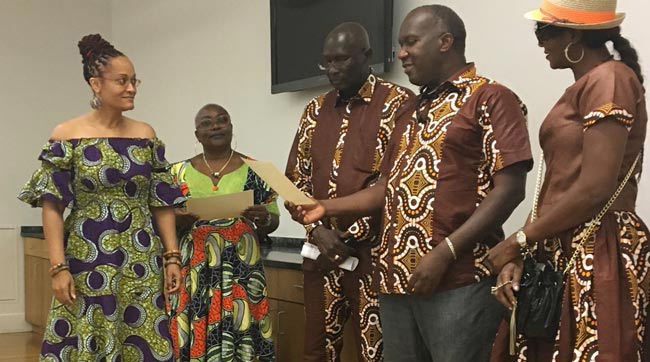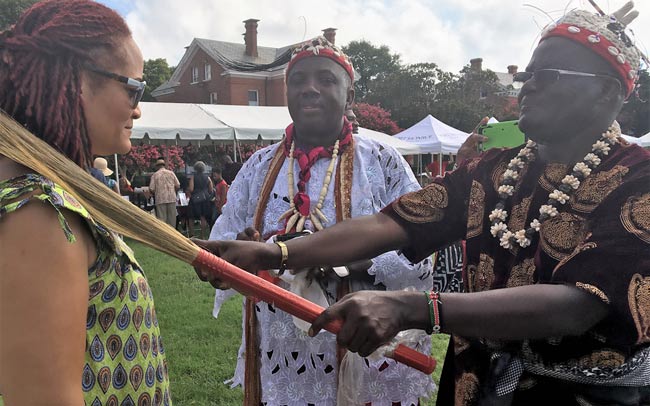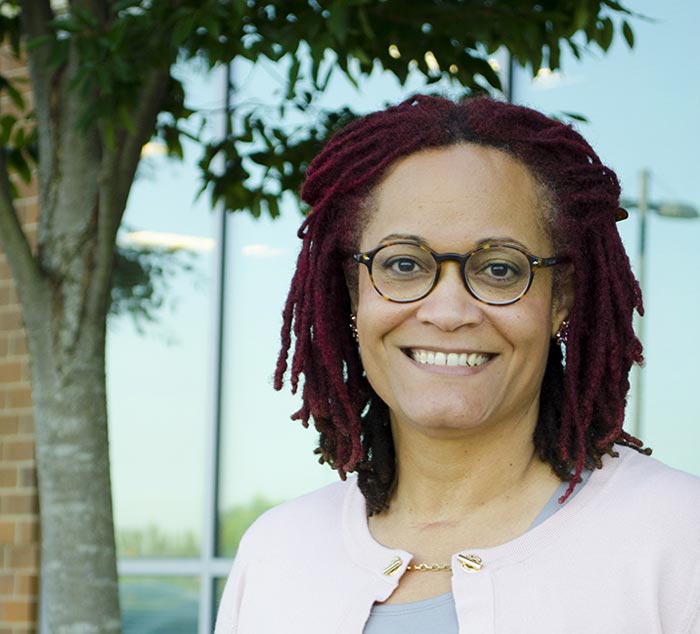Before I set in on some very difficult themes, I’d like to introduce myself. I’m an Army-trained journalist, civil-servant, and well-traveled, single-parent mother of three. I have no special credential in blackness, but I think it might be enough that I have lots of experience living and navigating in America and abroad.
I’ve been black everywhere I’ve lived and traveled, Europe, Asia, Africa and the United States. I’m not being funny, but black is perceived differently everywhere. And then, so are Americans.
I’ve had the opportunity to discover and rediscover myself from many points of view. I’ve experienced the depth and breadth of self, and my essence through the eyes of others, who do not always see me the way I see myself. In Hawaii, they thought I was native. In Germany, I must be mixed-race German, and in Spain, I was mistaken for Spanish.
The big question is why was it not O.K. for me to be black? Is there an additional hierarchy of which I’m unaware?
Black and African-American
For some, the connotation of black might still be negative. I’ve decided that I’m no longer going to allow others to place labels that degrade and belittle me. I always preferred being ‘black’ to being ‘African-American’. But, after more than four decades of living the life as a black, single-parent woman, I can now clarify my position. I’m willing to talk about race, color and just about everything else in this column. What I need from you, the reader, is for you to have an open mind, and I want to hear your thoughts. Please do provide online comments, host discussions and get involved.
Once upon a time, I would have never associated myself with Africa. I grew up in a rural part of Maryland, and at the time I’d not seen any Africans, Asians or anyone else. My world was two-dimensional, white and black. My family was small. I was somewhat insulated from the rest of the world. I was often the only black person in many of my classes in high school and college. I wasn’t anti-social, but I still didn’t have many close African-American or Caucasian friends for that matter. Race and racism was a non-issue for most of my life. I focused on my small, nucleus family, and on doing me. I’m still that way, but, I know now, it’s important to know who you are, and where you come from. It’s human nature.
One thing I noticed while traveling around with the military, people always ask where you are from, and they don’t mean Maryland. Once, while in Turkey a man asked me where my family was from, when I didn’t respond the way he expected because I told him I was from the United States. He continued to question me.
“No,” he said. “Where are your parent’s from?”
By then, I was laughing, but replied, “Virginia.”
I was laughing because he thought I’d say I had some Turkish roots. But, the joke was on me because at the time I was unaware of my trace DNA that links me to that region. The truth is Africans are everywhere around the world whether enslaved or not, people were trading commodities everywhere. We are really all interconnected, Africans, African-Americans and our counterparts of all races. When I look back and think about how far I’ve come. I can admit my ignorance and lack of knowledge in the areas of geography, history, science and the social studies. These are the subjects I’ve had to refresh to study my own family, DNA connections, genealogy, and history.
I think that is part of the American experience. People are busy being busy. We don’t always pay attention to something until it shows up, calls us out, and makes us pay attention. When I was younger, I would never have volunteered to study any of these subjects, yet, I’m happiest when I’m spending a Saturday with the ancestors pouring over my family tree.
Ancestral Ties
You see, this passion found me. I found my love of Africa and ‘my people,’ as I affectionately call my brothers and sisters, by accident. There was nothing intentional and my life’s direction and motivations had to change to support my lifestyle.
I found myself at the verge of a cultural shift while living in Europe. Someone, who took the time to talk to me, hear my point of view and share his personal experiences about coming to America, living and being a naturalized citizen. He explained some of the unique challenges. He was the first of many Africans I’ve had the pleasure to meet and get to know. He brought me to my roots, and then in quick succession I was open to meeting others. I found an acceptance in myself, but I’ve also been received and welcomed in a very closed-tight circle.
At the time, I didn’t know Africa was in my future. It has become my greatest source of happiness. Not only am I a story-teller. I am a dancer, drummer, painter, and family historian. Through learning more about myself, I’ve also discovered new talents. These are gifts I’m sure passed down through my ancestors. In the old days, none of this would have mattered to me. But, when I looked out across the Atlantic Ocean from Ghana’s Elmina, the slave castle, I decided then that my ancestor had survived because I had a mission. It was in that moment that decided to always be my best and honor their sacrifice through my work. Further, I also decided to never be ashamed of my African heritage.
“If you have black or brown skin,” he said. “You are African.”
“You are from Africa too,” he said. There are people with light skin, just like you there.”
This was the conversation that forced me to contemplate black vs. African-American, the status. I’d always considered myself black, but the lack of African experience made me question that title. In fact, I hated filling out the census forms because I didn’t think it adequately suited me and my racial composition.
At the time, I couldn’t challenge him because I didn’t know much then. I’d never thought about it, and frankly I wasn’t sure I cared. It was a ridiculous conversation between coworkers, but it struck something inside of me because I’d grown up looking at fair-skinned, blue-eyed and green eyed people.
People with darker skin were mostly a mystery to me. I’d never really thought about that either. I had little or no interaction, frame of reference. And, no interest in black-culture, language and customs.
The only thing I was taught was to speak good English.
My grandmother used to say, “act like you are somebody, and stay away from the peanut heads.” I’m still confused about that advice although it has a wide series of implications – all racial I’m sure. However, being sheltered meant not mixing too much in any direction.
“I don’t know anything about Africa,” I said to my coworker. “I don’t know any people from Africa. I’m an American.”
He told me, I was going to be his project. He said, “I’m going to educate you.” He did. He took me to Ghana.
I went to Ghana first, then later I traveled to Benin, a small French-speaking republic also in West Africa.
At El Mina, the slave castle, I stood out and looked across the ocean and knew I had at least one Ancestor who had made the trip. I was certain of my Ghana connection. I knew I was home. I wanted to honor my ancestors by living up to my highest potentials, therefore, everything I do now matters. I always try to present my best self. Because they died and suffered, so I could thrive not just in America, but everywhere.
I suspect you might have also gone through a similar shift, which is why you are reading this article. No matter who you are, I believe the ancestors eventually call us all home. I believe there is a natural connection, DNA or otherwise. It seemed like my skin came alive in a way I’d not experienced before when I was on the continent. I wasn’t ready for the drastic and immediate change. Those who knew me before, think I lost my mind. It felt like it to me as well. I sometimes give talks, and I regularly participate in cultural events to stay connected.
Ghana was my introduction to Africa. I learned about myself, and just enough to make me more curious. After the DNA test confirmed my Ghana ancestry, I decided I must also visit the countries of my origin. It’s not a bucket list plan. I believe I have work to do. I’ll make the trip when I’m still young enough to dance with my brothers and sisters, and to really enjoy my time there.

Denver Beaulieu-Hains participates in a Roots to Glory and Cote d’Ivoire naming ceremony in Silver Spring, MD.
I will travel to every place to which I’m genetically attached, the big ones are: Nigeria, Congo, Cameroon, Ivory Coast and Ghana. That’s only fair because I’ve already lived in Germany, and vacationed in Ireland. Although, I’m also 24 percent British. But, I’ve not visited the U.K. yet.
A Personal Commitment
My point is, I’m making an intentional choice to embrace who I am, all of me. I’m not trusting a third-party source like the media to tell me what Africa is, and is not. I hope those around me do the same.

Denver Beaulieu-Hains receives a traditional blessing from the Cameroonian delegation attending the First Landing celebration at Fort Monroe, Va., Aug. 20, 2016.
I’m also committed to do my part in educating others about my experience. I looked at the beautiful tropical landscape and wondered why I’d only seen death, starvation and savage representations of Africa. I believe that by becoming more educated and by sharing the facts, we each can change the world one person at a time.
Real change doesn’t have to be sweeping and immediate. I’ll take steady and consistent changes too. If we are all working together with a common goal in mind, I’m sure we’ll get to the prescribed destination.
And, to my brother to whom I am indebted for the greatest life-lesson, ‘Meda w’ase,’ which means ‘thank you’ in his native Twi-language.
Let’s continue the dialogue! Let’s all continue to work together.
Denver Beaulieu-Hains is a writer, speaker and public relations professional with more than 20 years of experience working as a spokesperson, media consultant and planner for the Department of Defense and the federal government. She is a survivor of both sexual abuse and domestic violence. As a writer, she is thoughtful, honest and direct. At times the raw emotion of her experience leaps off the page. Beaulieu-Hains has a Master of Science in Administration with an emphasis on organizational development and leadership, and a Bachelor of Arts in Speech Communications and Journalism. Beaulieu-Hains is a native of the Washington D.C. metropolitan area and has three adult children.
Also by Denver Beaulieu-Hains


This article reflects most of why I believe people need to venture out of their comfort zone and find out who they are. I think the world will benefit when everyone realize we are one. Thanks for sharing
I’m all out. Let’s change perceptions one person at a time. We are black people, beautiful, intelligent and interesting people….we are erasing old stereotypes.